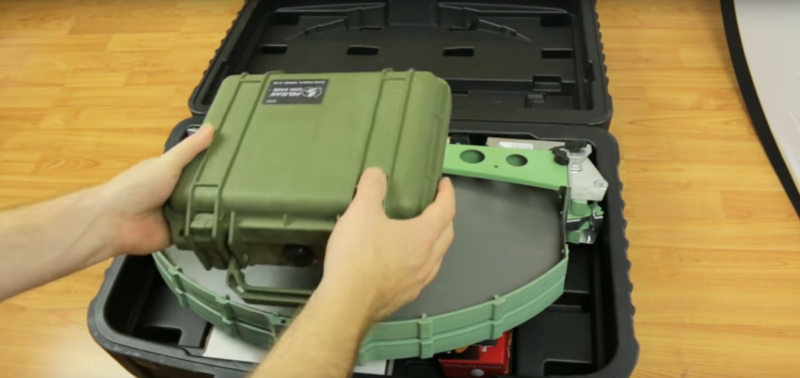[Eric] at MkMe Lab has a dream: to build a cheap, portable system that provides the electronic infrastructure needed to educate kids anywhere in the world. He’s been working on the system for quite a while, and has recently managed to shrink the suitcase-sized system down to a cheaper, smaller form-factor.
The last time we discussed [Eric]’s EduCase project was as part of his Hackaday Prize 2016 entry. There was a lot of skepticism from our readers on the goals of the project, but whatever you think of [Eric]’s motivation, the fact remains that the build is pretty cool. The previous version of the EduCase relied on a Ku-band downlink to receive content from Outernet, and as such needed to stuff a large antenna into the box. That dictated a case in the carry-on luggage size range. The current EduCase is a much slimmed-down affair that relies on an L-band link from the Inmarsat satellites, with a much smaller patch antenna. A low-noise amp and SDR receiver complete the downlink, and a Raspberry Pi provides the UI. [Eric]’s build is just a prototype at this point, but we’re looking forward to seeing everything stuffed into that small Pelican case.
Yes, Outernet is curated content, and so it’s not at all the same experience as the web. But for the right use case, this little package might just do the job. And with a BOM that rings up at $100, the price is right for experimenting.
[via r/raspberry_pi]
















Sweet..
I ended up checking out the Outernet and RTL-SDR.COM websites. Might be something to look into, once I get past my current pile of projects.
Sure, the change in antennas is a huge space saver, but why throw out all the devices with displays too? Is this iteration meant only for places that already have some kind of external screen for him to use, just no internet connectivity? Am I missing something here?
I’m not throwing out anything. The new antenna system only replaces the previous dish, receiver and case. The Main EduCase remains the same with all the internal equipment and displays. Cheers
http://www.rtl-sdr.com/rtl-sdr-tutorial-receiving-and-decoding-data-from-the-outernet/
Outernet .. so a kind of digital file broadcaster .. while this would be very nice to have after the apocalypse to track zombies and all, and of course on the sea and in the middle of nowhere, 2kbps sounds really painful now for any information meant for humans to process..
About the supply side .. i wonder what it would cost to stream some data over the internet to Inmarsat who then uplink it and have it broadcast almost worldwide by 3 satellites ?
The Outernet system is apparently based in Chicago. After an apocalypse, I would not expect Chicago to last very long.